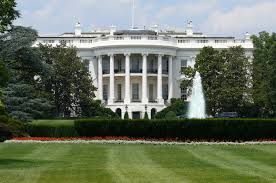A Paper Tiger?
Legal Planet: Environmental Law and Policy 2020-01-06

The Trump Administration is trying to gut the current White House rules on environmental impact statements. Some people view this move as a death blow to an important environmental tool. Here’s what Trump is trying to do and why it may not matter as much as people fear.
As to what Trump & Co. are trying to do, the same statute that created environmental impact statements also created a White House agency called the Council on Environmental Quality (CEQ). CEQ has issued guidelines about how other agencies should prepare impact statements. According to the NY Times, a leaked draft makes some dramatic changes to the existing guidelines:
“Federal agencies would no longer have to take climate change into account when they assess the environmental impacts of highways, pipelines and other major infrastructure projects, according to a Trump administration plan that would weaken the nation’s benchmark environmental law.”
The Times continued that the “proposed changes to the 50-year-old National Environmental Policy Act could sharply reduce obstacles to the Keystone XL oil pipeline and other fossil fuel projects that have been stymied when courts ruled that the Trump administration did not properly consider climate change when analyzing the environmental effects of the projects.”
The first thing to note is that the proposal actually doesn’t make any changes in the National Environmental Policy Act. Only Congress can do that. And while agency regulations can be really important, these particular proposed regulations may turn out to be relatively toothless.
Why toothless? Because Congress never gave CEQ authority to issue binding regulations or to do anything else except issue advice. That means that CEQ’s rules are not entitled to what courts call “Chevron deference,” which would require courts to accept the CEQ position if it’s reasonable. Instead, CEQ’s rules can get only Skidmore deference. That means that courts should give a CEQ rule weight based on the “merit of its writer’s thoroughness, logic, and expertness, its fit with prior interpretations, and any other sources of weight.” This seems consistent with the Supreme Court’s more specific statement, issued a decade before the Court clarified standards of deference, that an amended CEQ regulation is entitled to “substantial deference” if it there is a “well considered basis for the change.”
Thoroughness, logic, and expertise have never been the Trump Administration’s strong points. Changes to the CEQ regs do marginally strengthen its argument in court. But it doesn’t seem very likely that any court will overrule its own prior interpretation of the statute on the say-so of the Trump CEQ. This doesn’t mean that the action by CEQ is inconsequential. It’s still a terrible idea, will cause at least temporary confusion, and may do some damage. But it shouldn’t be a game-changer.
The post A Paper Tiger? appeared first on Legal Planet.